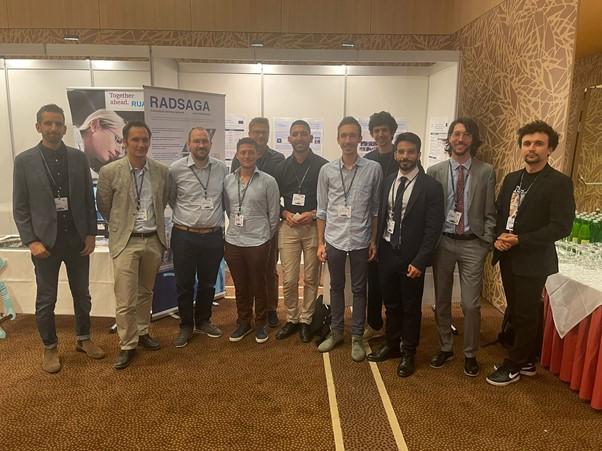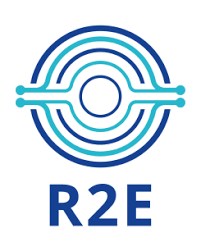
Last month, the hybrid RADECS 2021, Sept. 13th-17th, Vienna conference took place, with a very strong representation of the Radiation to Electronics (R2E) @CERN project in Vienna, as well as a rich and varied set of contributions.
In the SEEMechanismsAndModelling session, Vanessa Wyrwoll showed results and simulations related to high-energy electron induced SEUs in SRAM memories (C1), and @Corinna Martinella presented results in heavy-ion induced latent damage in SiC power MOSFETs (C3).
In the RadiationHardnessAssurance session, Alessandro Zimmaro shared his results related to a testing methodology for accelerator radiation monitoring systems (PG2) and Andrea Coronetti delivered a presentation on how to use proton (or mixed-field) SEL results to establish upper bounds for LEO rates in space (G6).
In the AlternativeTesting&RhaApproaches session, Antonio Scialdone contributed with his work on FPGA qualification and failure rate estimation for the LHC radiation environment and applications (J5). Also, Marco Giordano shared his results on NeuralNetwork approaches for benchmarking microcontrollers under radiation (PJ3).
In the RadiationEnvironments session, Giuseppe Lerner presented a poster related to the photo-neutron field generated near a high-energy electron dump, and its possible use for radiation effects testing (PH8).
In the FacilitiesAndDosimetry session, MATTEO BRUCOLI spoke about heavy-ion charge yield measurements with FloatingGate dosimeters (I3), about which Marta Rizzo presented her results on an enhanced sensitivity operation mode (IP4).
Likewise, Daniel Prelipcean contributed with a poster focusing on the benchmark between measurements and simulations in the CHARM facility (PI1). Moreover, Kacper Bilko shared his results related to the use of solid-state detectors for high-energy accelerator mixed-field monitoring (PI3).
Many other contributions were co-authored by R2E members, whereas Salvatore Danzeca co-chaired the RadiationEffectsInDevicesAndICs session, and Rubén García Alía was the conference TechnicalChair, supporter by @Ygor Aguiar.
- Log in to post comments
